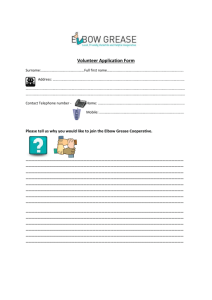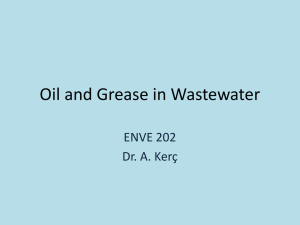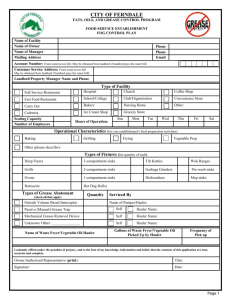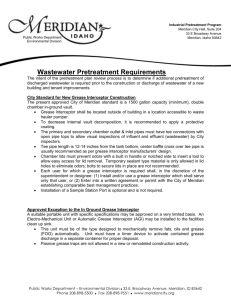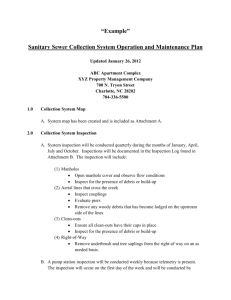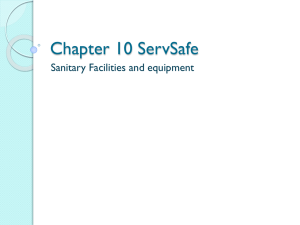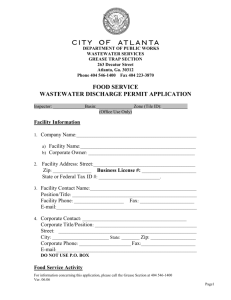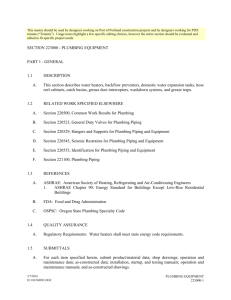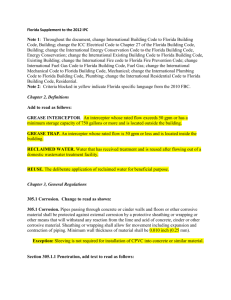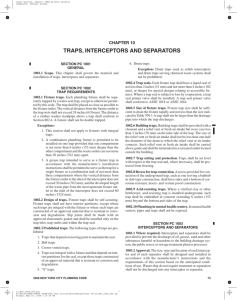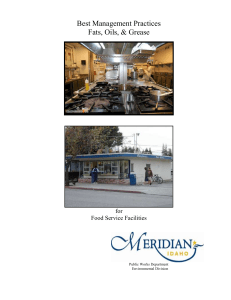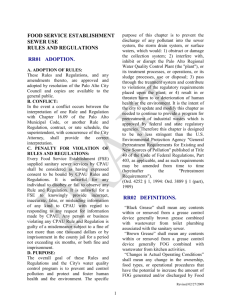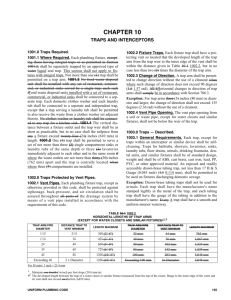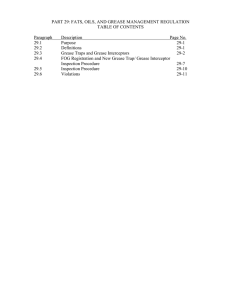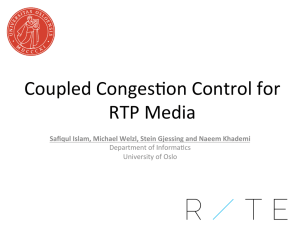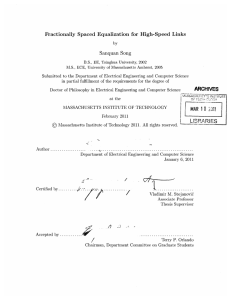(BMP) for Food Service Establishments (FSE)
advertisement
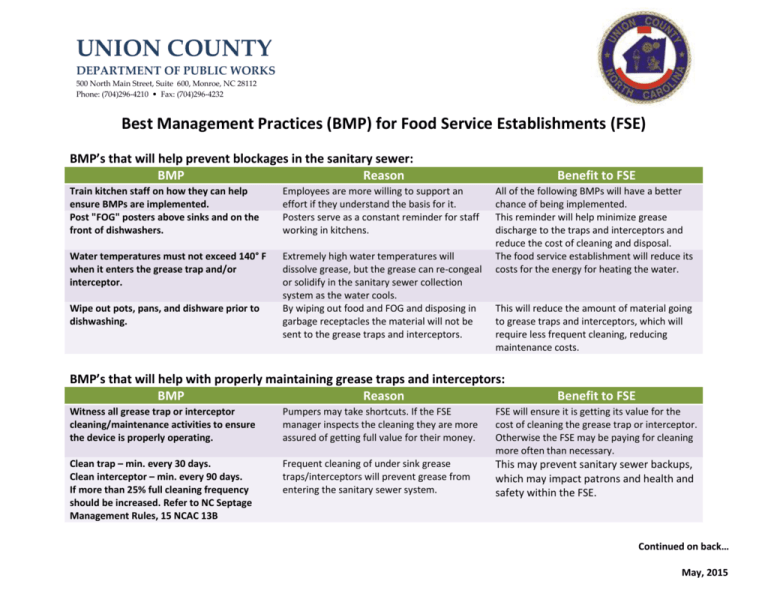
UNION COUNTY DEPARTMENT OF PUBLIC WORKS 500 North Main Street, Suite 600, Monroe, NC 28112 Phone: (704)296-4210 • Fax: (704)296-4232 Best Management Practices (BMP) for Food Service Establishments (FSE) BMP’s that will help prevent blockages in the sanitary sewer: BMP Reason Train kitchen staff on how they can help ensure BMPs are implemented. Post "FOG" posters above sinks and on the front of dishwashers. Employees are more willing to support an effort if they understand the basis for it. Posters serve as a constant reminder for staff working in kitchens. Water temperatures must not exceed 140° F when it enters the grease trap and/or interceptor. Extremely high water temperatures will dissolve grease, but the grease can re-congeal or solidify in the sanitary sewer collection system as the water cools. By wiping out food and FOG and disposing in garbage receptacles the material will not be sent to the grease traps and interceptors. Wipe out pots, pans, and dishware prior to dishwashing. Benefit to FSE All of the following BMPs will have a better chance of being implemented. This reminder will help minimize grease discharge to the traps and interceptors and reduce the cost of cleaning and disposal. The food service establishment will reduce its costs for the energy for heating the water. This will reduce the amount of material going to grease traps and interceptors, which will require less frequent cleaning, reducing maintenance costs. BMP’s that will help with properly maintaining grease traps and interceptors: BMP Reason Benefit to FSE Witness all grease trap or interceptor cleaning/maintenance activities to ensure the device is properly operating. Pumpers may take shortcuts. If the FSE manager inspects the cleaning they are more assured of getting full value for their money. FSE will ensure it is getting its value for the cost of cleaning the grease trap or interceptor. Otherwise the FSE may be paying for cleaning more often than necessary. Clean trap – min. every 30 days. Clean interceptor – min. every 90 days. If more than 25% full cleaning frequency should be increased. Refer to NC Septage Management Rules, 15 NCAC 13B Frequent cleaning of under sink grease traps/interceptors will prevent grease from entering the sanitary sewer system. This may prevent sanitary sewer backups, which may impact patrons and health and safety within the FSE. Continued on back… May, 2015 UNION COUNTY DEPARTMENT OF PUBLIC WORKS 500 North Main Street, Suite 600, Monroe, NC 28112 Phone: (704)296-4210 • Fax: (704)296-4232 BMP’s that will help with properly maintaining grease traps and interceptors continued… BMP Keep required maintenance logs. Reason Maintenance logs serves as a record of the frequency and volume of cleaning the interceptor. It is a requirement of UCPW. Benefit to FSE This can help the FSE optimize cleaning frequency to reduce cost. BMP’s that will help protects surface waters: BMP Cover outdoor grease and oil storage receptacles. Locate grease receptacles away from storm drain catch basins or establish proper containment. Reason Benefit to FSE Uncovered grease receptacles can collect rainwater causing an overflow which can eventually reach the surface waters. The farther the receptacle is away from a storm drain the more time someone has to clean up a spill before it enters the storm drain system. Be aware of FOG dripped on the ground while carrying waste to receptacle. The discharge of FOG to the storm drain system is unlawful and will degrade the water quality of surface waters. The discharge of FOG to the storm drain system is unlawful and will degrade the water quality of surface waters.
